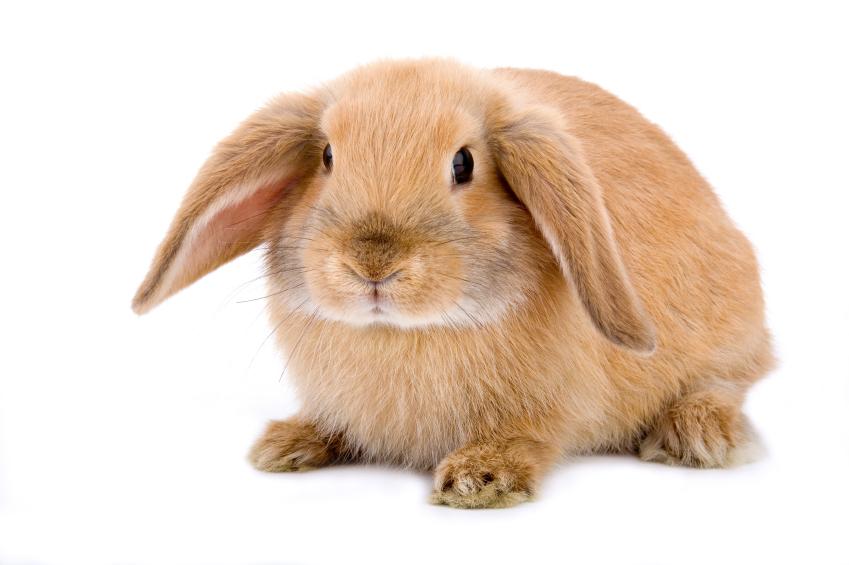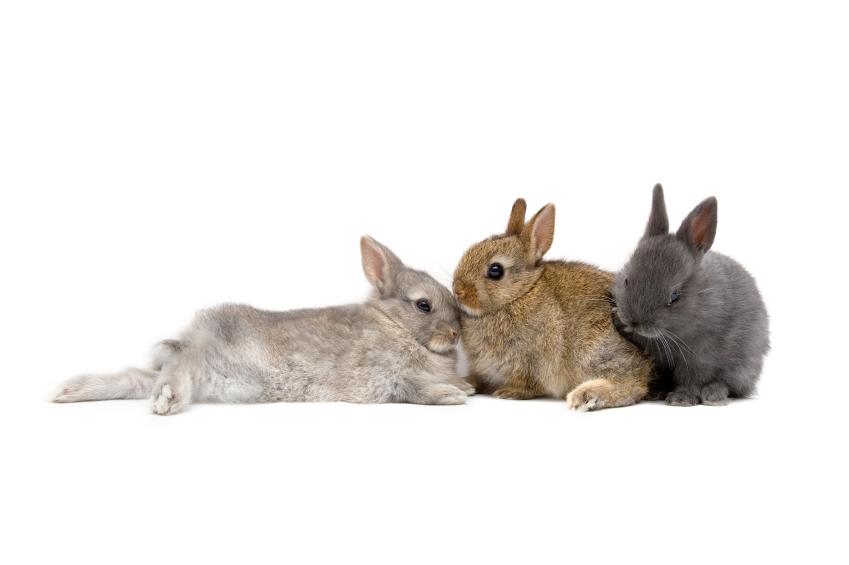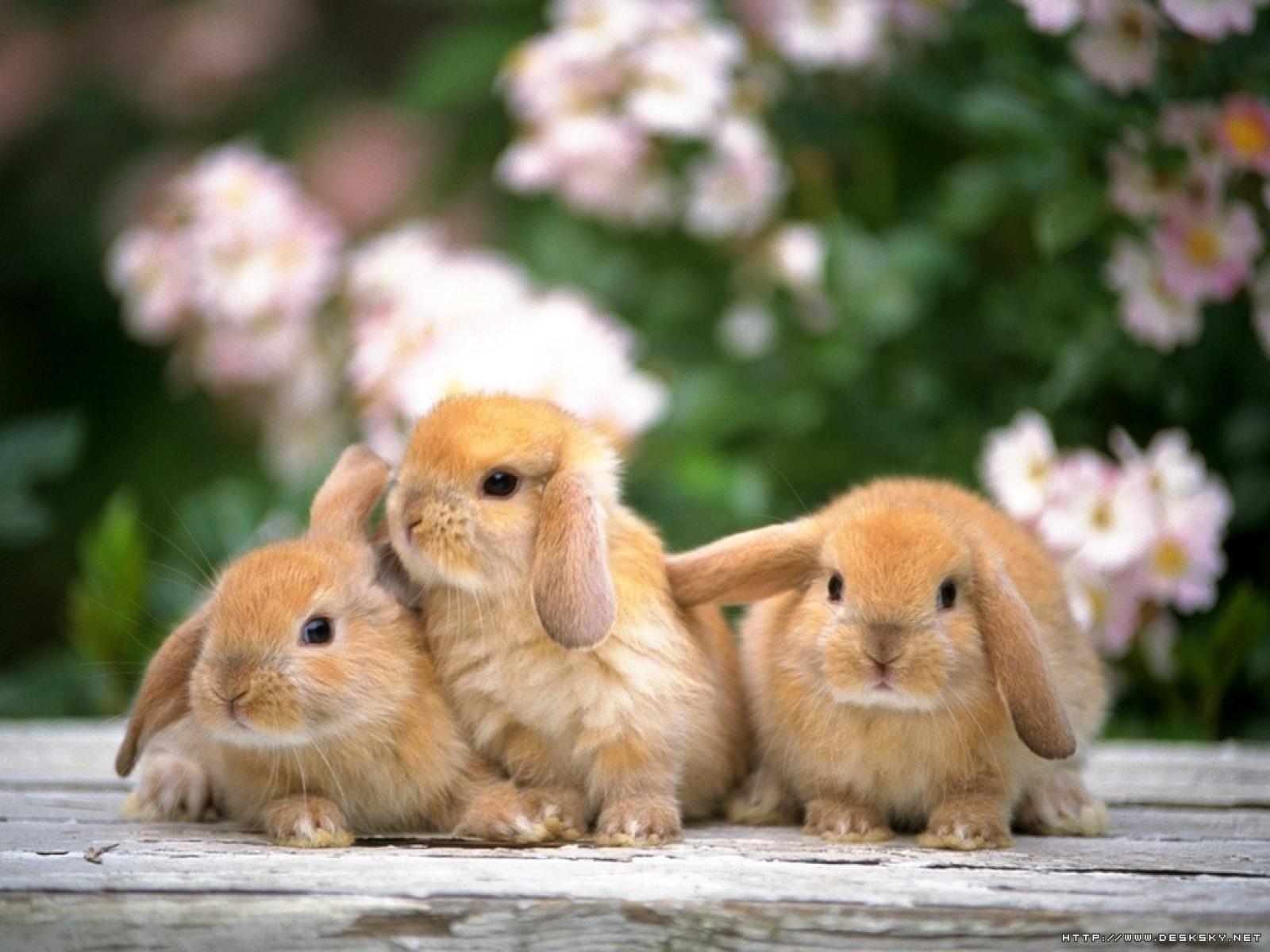Why Is My Rabbit Shaking?


Owners of rabbits often have to deal with many peculiar behavioral aspects of these cute and cuddly creatures. In the wild, rabbits are prey animals. Their body language is totally instinct-based. As an owner, it will help to thoroughly know your pet to understand them. Know exactly how they behave, adapt and respond to their environment, without getting worried.
A rabbit shaking or trembling is one of the most common behaviors owners come across and leaves many nervous, because it seems unusual. Are you a new owner and wondering "why is my rabbit shaking?" oneHOWTO is here to help.
Why do they shake when it's hot?
Rabbits (or bunnies as many prefer) do not take heat very well. While freezing temperatures are a different story, they are generally able to endure cold. Conversely, heat really gets to them. A temperature of 26º C (80º F) or more will cause them distress. High temperatures will make rabbits shake. This might seem counter intuitive to you as cold temperatures tend to make us shake more than warm climates. However, bunnies are a little different.
When a rabbit is too hot, they might get heat stroke. While for humans, heat exhaustion may cause a range of symptoms such as dizziness and headaches, the case is different for rabbits. A rabbit with heat stroke cannot regulate their temperature by sweating. Instead, they dilate their blood vessels to regulate temperature[1]. In particular, they dilate the vessels near their ears. This is why you may see a rabbit shaking ears or shaking their head and running. This is often an attempt to quickly regulate their temperature when they have overheated.
Treatment for heat stroke in rabbits involves reducing their temperature. Bring down the heat in the room and leave a cold compress, a damp sheet or a pillow near them. If heat is the cause, the rabbit will come in contact with the cold surface and start feeling better. If they do not stop trembling or shaking their head after you have reduced their temperature, you will need to take them to the vet.
Why do bunnies shake when they're frightened?
When scared, it is quite normal for rabbits to start shaking. You will notice that they are frightened due to their body language. Their nose will vibrate in these situations.There are many different reasons why a rabbit could get frightened, so it is very important to look at any concurrent symptoms and to take a look at their habitat.
It could be due to trauma or a change of surroundings.When you get a new rabbit home, they might miss their earlier environment at the pet store or the farm. They might even miss their mother or siblings. Sometimes, a rabbit that’s used to being alone may not respond well to another in close confines and may get frightened with new company.
Other rabbits will also provide cause for stress in rabbits. If the rabbits have not been sterilized, then they may try to mount the other. This isn't always as a means of procreation. Male rabbits may mount other males as a way to relieve pent up sexual energy or even simply to assert dominance. While we try our best top create convivial living spaces for our beloved pets, there are many elements which can lead to stress. However, it is important to note that quality of care is very important. A 2018 study has also shown that domestic rabbits are much less frightened than their will cousins[2], so domestication does seem to be having an effect.
The above stressful situations may make a rabbit shake and even spray urine too.

Are they shaking or is it just hiccups?
With long-haired rabbits it can be difficult to decipher if the rabbit is really shaking its whole body or if it is just having a case of the hiccups. The most common cause of hiccups in rabbits is a gastrointestinal issue. Rabbits are grazers, so they are unlikely to eat too fast. However, this doesn't stop them from eating too much or too much of the wrong thing.
If rabbits are given food which is too rich for them or has nutrients which are not beneficial to them, they might get upset stomachs. This can lead to hiccups, something which has been reported in rabbits[3], but not all animals. There is still some mystery over the cause of hiccups and other theories suggest it is due to spasms in the respiratory muscles.
When your rabbit has the hiccups, you can reassure them by caressing them softly. Touch their stomach, nose, ears and back gently to help flow of digestion and respiration. Do not do it too firmly or you could cause damage. They might be breathing fast, so recognize their normal breathing pattern. Hiccups might manifest as the rabbit shaking their head, moving their ears from side to side. However, it can cause a tremor to go through their entire body, especially in acute cases.

Is my rabbit actually shaking?
There are different kinds of behavioral changes in rabbits. While we need to keep an eye out to see if our rabbit is shaking, we need to be careful to ensure we are not mistaking this symptom. This is why it is so important to check if our rabbit is shaking their head specifically. It can be easy to confuse shaking with other types of movement.
If your rabbit has an ear infection, then it is possible they will shake or scratch their head. It doesn't mean they are trembling or have a tremor. It is a physical reaction whereby they try to shake out the discomfort or it is a reaction to pain. The ear infection may have many causes, such as waxy build up, ear mites or other parasitical infestation. If this is the case, you should be able to see otitis (inflammation of the ears) and should take your rabbit to the veterinarian.
A vet will likely treat infestation with a deworming product. If the infestation has lead to infection, this can be treated with antibiotics. A waxy build up with require an ear cleaning, but you will want the vet to take care of it if it has lead to shaking symptoms.
Is my rabbit's shaking an abnormal sign?
Rabbits are sensitive animals and they might shake a little while still being healthy. If they do, it will be for a short period only and won't be a symptoms of some underlying problem. Also, we may be oversensitive and see our rabbits breathing fast. Fast breathing in rabbits is normal and their heartbeat is also fairly rapid. This is why we need to get to know the signs of a healthy rabbit, so that we can know the difference when something is wrong.
Shaking at all times is not normal and it’s a sign that something is not right. It is important to look for other signs along with shaking episodes. Is your rabbit eating well? Are they pooping fine? Are there any other behavioral changes that you have observed? If there are other symptoms accompanying the shaking and they don't seem well overall, it is recommended you go to the vet as soon as possible.
If you rabbit is shaking before lying down, then you need to recognize this as a sign of something abnormal. Shaking followed by lying down might be a sign your rabbit is dying. If this is the case, then you will need to take them to the veterinarian immediately.
Can I prevent my rabbit from shaking?
As there are many causes which may lead to your rabbit shaking, the best thing to do is maintain their overall health as best you can. Here are some ideas to help you prevent shaking in your rabbit:
- Diet: maintain a proper diet which has sufficient amounts of quality feed and introduces fruit and vegetables. However, do not overfeed on the latter and ensure they are types beneficial to rabbits such as leafy greens. Also, they need a constant supply of fresh hay,
- Hygiene: if a rabbit’s hutch or cage is not cleaned regularly and thoroughly, it can lead to disease and stress.
- Remove stressors: if there are stressors in your rabbit's life, the family cat constantly bothering them for example, remove them.
- Temperature: ensure the rabbits are kept away from draughts and out of direct sunlight.
- Handling: don’t over-manipulate your rabbit as this can stress them out. Let them come to you and don’t pick them up if they obviously don’ want to be handled. Also, do not lay them on their back until they paralyze (known as trancing). It is dangerous and can cause a lot of anxiety.
If you want to read similar articles to Why Is My Rabbit Shaking?, we recommend you visit our Pets category.










